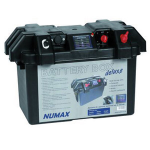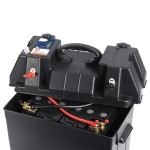ridgy
Well-known member
Thought I might do the decent thing and add some battery boxes to the setup but then I started wondering how you put the lids on since the cables would be in the way?
The lids seem to have areas that look like they should be cut out but even then how do you attach the cables which are now under the lid?
The lids seem to have areas that look like they should be cut out but even then how do you attach the cables which are now under the lid?


